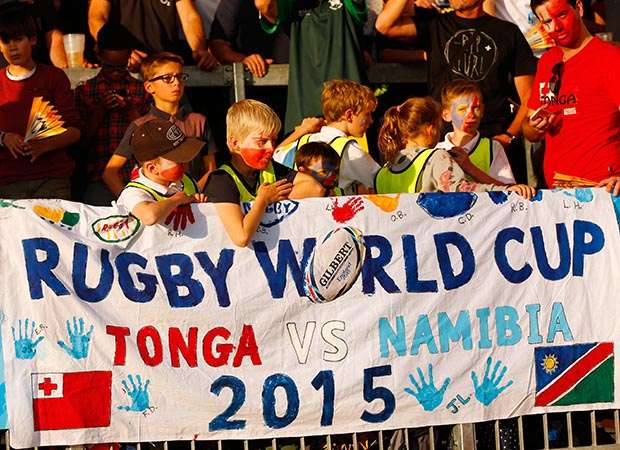

It was a blessed relief to break away from the the trials and tribulations of the 2015 World Cup’s most badly wounded big beast, England, earlier this week, and leave Twickenham behind for the delights of deepest Devon.
With the Exeter Chiefs compact Sandy Park ground playing host to the Pool C match between Tonga and Namibia on Tuesday afternoon it was not just a timely panacea to the agonising over England’s defeat to Wales, but the chance to see the positive impact of the tournament in one of English rugby’s heartlands.
It was also an opportunity to gauge how one of the established second tier nations, Tonga, who are ranked 12th in the world, fared against Namibia, who are in 20th place and stuck with the tag of being tournament minnows.
Not that Namibia is a minnow of a place in any other areas bar their rugby team, and a population of only 2.1 million. The South West African country is bigger than France and Germany combined, and its spectacular Namib desert is home to the Welwitschia, a weird giant plant that provides the nickname given to the national side and resembles a Triffid – though the Namibian version is harmless rather than man-eating.
The Namib desert also featured as the location for the latest Mad Max: Fury Road blockbuster – which is fitting because, in the formidable shape of Jacques Burger, the Welwitschias have a road warrior to match Tom Hardy’s Mad Max when it comes to action-man grit. The shaggy-haired Saracens flanker is Namibia’s captain and talisman, and his collision with the heavy-hitting Tongans promised to be box office.
On top of that, Exeter was bursting with civic pride at being part of a global sporting event and hosting its first landmark international fixtures since New Zealand‘s first match in Britain in 1905. The reward for the Chiefs being selected as one of only two Premiership club grounds used for the World Cup was that club chairman, Tony Rowe, was given the freedom of Exeter for outstanding services to rugby.
Rowe wasted no time in deciding to exercise an ancient right in order to promote the World Cup fixtures at Sandy Park. As a Freeman it is Rowe’s prerogative to herd a flock of sheep through the city centre, and, early in September he did so by driving a handful of sheep, draped in the flags of the competing nations (Tonga, Namibia, Georgia, Italy, and Romania), through Exeter.
The former Royal Marine bandsman, who presided over the club’s promotion to the Premiership in 2010, and also over the construction of Sandy Park, was loaned the sheep by former Chiefs No.8, Richard Baxter, who farms near the city, and is the brother of the club’s head coach, Rob Baxter.
With Chiefs luminaries like Rowe and coach Baxter part of the 10,103 crowd who filled the ground in the autumn sun the stage was set for the meeting between the Pacific Islanders and the Africans, both of whom had Chiefs players on their rosters. The Namibians had the elusive Chrysander Botha starting at full-back, while Tonga had hooker Elvis Taione and wing Fetu’u Vainikolo, who has just left Exeter for Top 14 side Oyonnax after two seasons with the Chiefs, although neither were in the match 23.
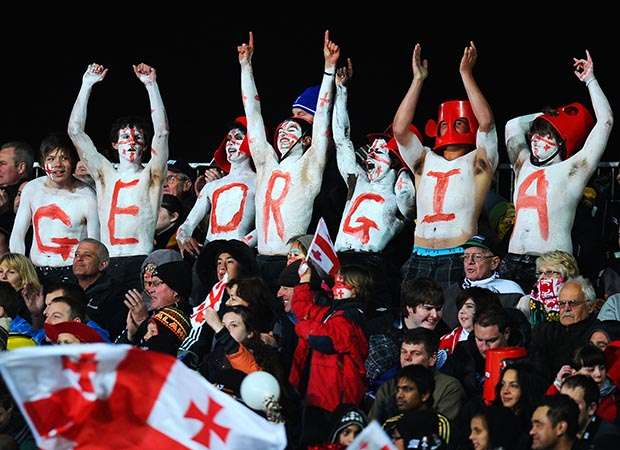 Botha joked beforehand that big things were in store for him if Namibia beat the Tongans to secure their first victory in the four World Cups they have competed in: “If we win a match I should retire from rugby and be appointed a member of the (Namibian) government. I think ‘Chrysander Botha, Minister for Sport’ sounds quite good.”
Botha joked beforehand that big things were in store for him if Namibia beat the Tongans to secure their first victory in the four World Cups they have competed in: “If we win a match I should retire from rugby and be appointed a member of the (Namibian) government. I think ‘Chrysander Botha, Minister for Sport’ sounds quite good.”
The 27-year-old added that if Namibia could make history by beating either Tonga, or Georgia – who they play at Sandy Park on Wednesday – they would be national heroes.
“If we won a match it would be historic for the country. It has been a long time coming…if we manage to do that it will be a public holiday in Namibia. That is how massive it would be for the sport in the country.”
As it turned out, Botha, Burger and company gave the Tongans a good run for their money, but did not quite have enough firepower to deliver the breakthrough victory they were striving for.
Although Tonga are ranked behind Fiji (8th) and Samoa (9th) in the world order, like their Pacific Island rivals they are a major exporter of rugby talent, whether you are talking of the Jonah Lomu of yesterday or the Malakai Fekitoa of today in All Black colours, the Vunipola brothers lining up for England, or Taulupe Faletau for Wales.
Nevertheless, Tonga soon demonstrated against Namibia that they have managed to retain some gems of their own with Melbourne Rebels wing Telusa Veainu making regular inroads with his jagged footwork and pace. They also had a flanker to give Burger a fierce contest in the loose in Jack Ram. The Auckland Blues openside was a constant threat to Namibia, bringing a raw athleticism and handling ability that had a hint of a young Michael Jones about it.
With Ram and Veainu scoring two tries apiece to help Tonga to a bonus point win they went some way to atoning for their opening defeat at the hands of Georgia. However, while the Georgians made another statement of their own by causing New Zealand problems in Cardiff on Friday night, Namibia also did enough with a late surge against the Tongans to suggest that they will be nobody’s cannon fodder despite a squad which includes farmers, a dentist and a diamond trader.
It was no surprise to anyone that Burger was at the heart of it. Despite being battered and bruised from the 58-14 loss to New Zealand at the Olympic Stadium, the indomitable flanker tucked in at the back of two line-out drives to shepherd them over the whitewash, cutting the final deficit against Tonga to 35-21.
Botha, who arrived at the Chiefs from the Golden Lions in Johannesburg, says that he sounded-out Burger before moving to Exeter. “Christian Cullen is the greatest full-back to ever walk the planet, but if you asked me who my Namibia hero is it would be Jacques Burger. So many Namibians would say him – he paved the way for so many guys.”
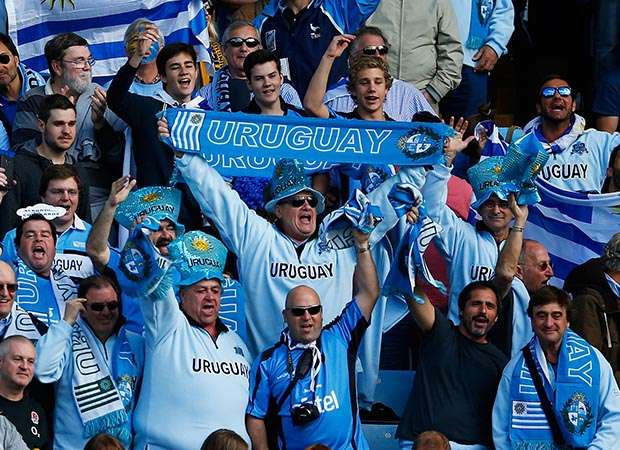 The inspirational ingredient in Tonga’s success in Devon had more of a culinary flavour to it. The Exeter branch of Nando’s said that the Pacific island team dined at the peri-peri chicken restaurant on each of the 10 days they were in the city – with some of the hungrier players arriving for lunch and dinner. The day before their match with Namibia, the Tongan squad presented the restaurant staff with a signed jersey to thank them for meeting their dietary requirements.
The inspirational ingredient in Tonga’s success in Devon had more of a culinary flavour to it. The Exeter branch of Nando’s said that the Pacific island team dined at the peri-peri chicken restaurant on each of the 10 days they were in the city – with some of the hungrier players arriving for lunch and dinner. The day before their match with Namibia, the Tongan squad presented the restaurant staff with a signed jersey to thank them for meeting their dietary requirements.
One of the most notable features of this tournament is that no-one is feasting on the minnows, let alone the second tier nations. The 100 point thrashings handed out to smaller nations in the past appear to have been curtailed. Not only that, in the wake of Japan springing one of the greatest upsets in World Cup history by beating South Africa, even the amateurs from Uruguay have managed to avoid scorelines where they have haemorrhaged tries, holding Wales to 54-9 and Australia to 65-3.
Results such as New Zealand’s win over Georgia (43-10), France over Canada (41-18), South Africa over Samoa (46-6), and Ireland over Romania (44-10) also tell a story of greater competitiveness.
That is a significant step in the right direction, and the full-house attendances – including an extraordinary crowd of nearly 90,000 at Wembley to watch Ireland play Romania – show that there’s currently an insatiable appetite at this World Cup for ‘being there’, irrespective of how competitive the match is.
However, the reality is that the outcome of half the pool matches is still far too predictable even though the margins of defeat have shrunk. That is why, alongside the elite World Cup, it makes sense to have a World Trophy tournament which would allow second/third tier teams like Tonga and Namibia to be winners in their own right.
What is great about the games being hosted at Exeter is that none of them can be described as foregone conclusions. Although Tonga were eventually too strong for the Namibians there was always a glimmer of an upset for the Africans, and you sense that it will be the same when Namibia play the Georgia. Similarly, although Italy will be expected to beat Romania, there is an outside chance of the Romanians doing a Japan.
However, what they can all be sure of in Devon, whatever the result, is a warm welcome in true rugby country.

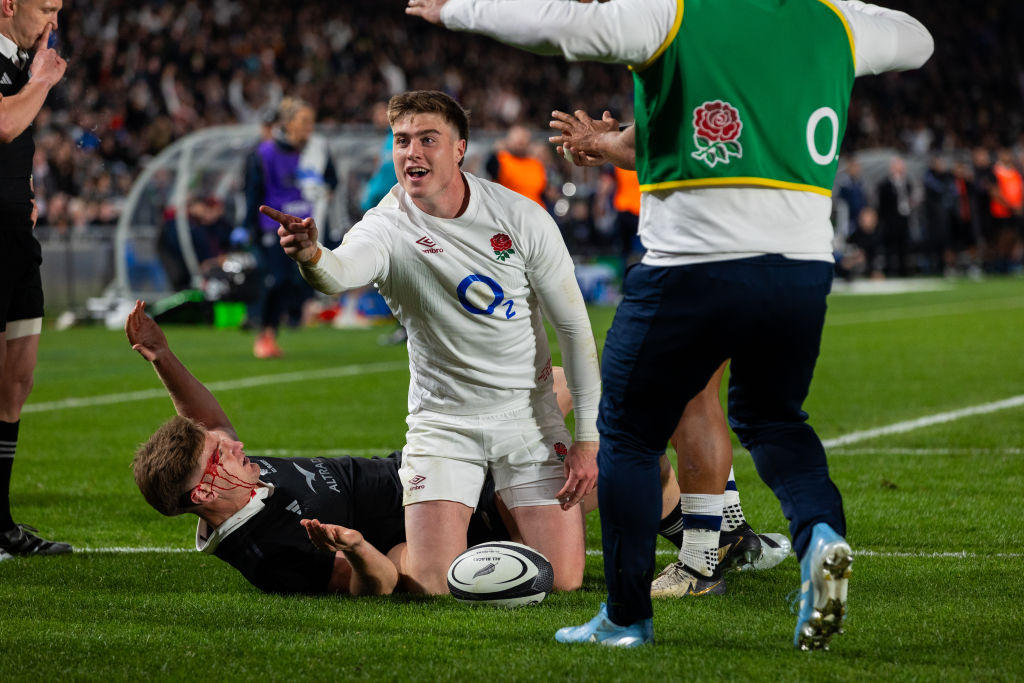
British and Irish Lions
From Leicester reject to a British and Irish Lion: Tommy Freeman’s stellar rise
Latest News
Steve Diamond: Franchise league a good idea

International Rugby
Touring Japan with Wales is my goal says Dan Edwards
















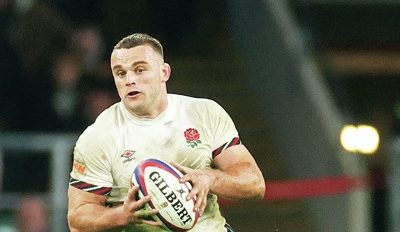





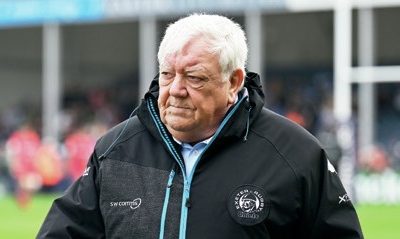

You must be logged in to post a comment Login